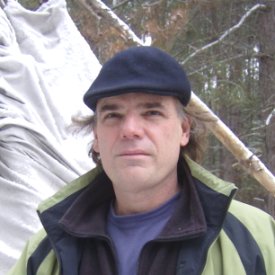|
I teach ecopsychology in
the area of:
Academically, I teach a full palette of courses designed to immerse
individuals, abstractly and physically, in MIND-NATURE
semiosis.
Practically/clinically, it involves addressing a number of diagnosable
dis-affectations that signify the etiologies of nature estrangement and
alienation.
|
|
|
I provide my services and
do research in:
Hawaii
|
|
|
|
One of the workshops I lead
is in:
Title:
Stalking
Dis-Affectations
About:
Recognition
(diagnosis) of symptoms associated with nature estrangement and
alienation as a preliminary step toward ecopsychological "intervention"
Objectives:
Examination
of speech patterns, written habits, and schemas that clarify
MIND-NATURE semiosis for a given individual.
Second,
develop individualized practices that elucidate biosemiotic
need.
Third, consultation as to what practices are best suited for an
individual.
Description:
- Evaluation of biomechanics
and its relation to attentional and affective states
Practice tracking as a practical task for mindfulness and to combat
anthropocentrism.
- Practice Zazen wandering.
- Re-schematizing "endurance"
as one resource in nature affiliation.
Duration:
An
initial, three-hour informational meeting. Then, a review of
the
specific activities and associated outcomes-one hour.
Finally, a
week-long experiential workshop in nature which includes a two-day
intensive (personalized) retreat. Including in the
week-long excursion is a one-day debriefing where participant
(participants) shared their insights and experiences..
|
|
|
|
Short
Curriculm:
Jorge Conesa-Sevilla developed Semiotic Matrix Theory (SMT) in 1998 as a biosemiotic (and ecosemiotic) integral model of inter-disciplinary "ecologial interactions." In 2005, along with Marcella Danon, they began an ecopsychology group in Italy and Switzerland that later became the European Ecopsychology Society (EES). He reads and writes across disciplines with interests in evolutionary psychology, human ecology, and ecosemiotics (psycho-eco-semiotics). He continues to apply SMT to other proposals such as "Panarchy."
In addition to writing Ecological Outcome Psychological Theory (1999) and Ecopsychology as Ultimate Force Psychology: A Biosemiotic Approach to Nature Estrangement and Nature Alienation (2006), he has published many articles in the areas of semiotics, ecopsychological biosemiotics, and environmental philosophy. In 1989 he received a B.A. (triple-special major--Whole Human) combining psychobiology, Eastern religion and biology from Humboldt State University in California. He received M.A. and Ph.D. degrees in experimental psychology from The University of Toledo, Ohio
|
|
|
My
way of putting into practice the principles I teach...
- Active, daily, and mindful participation in nature
- Involvement with local governments and community
working toward sustainable solutions
- Teaching new generations of students of all ages how
to reconnect with Nature in profound and long-lasting ways
|
|



